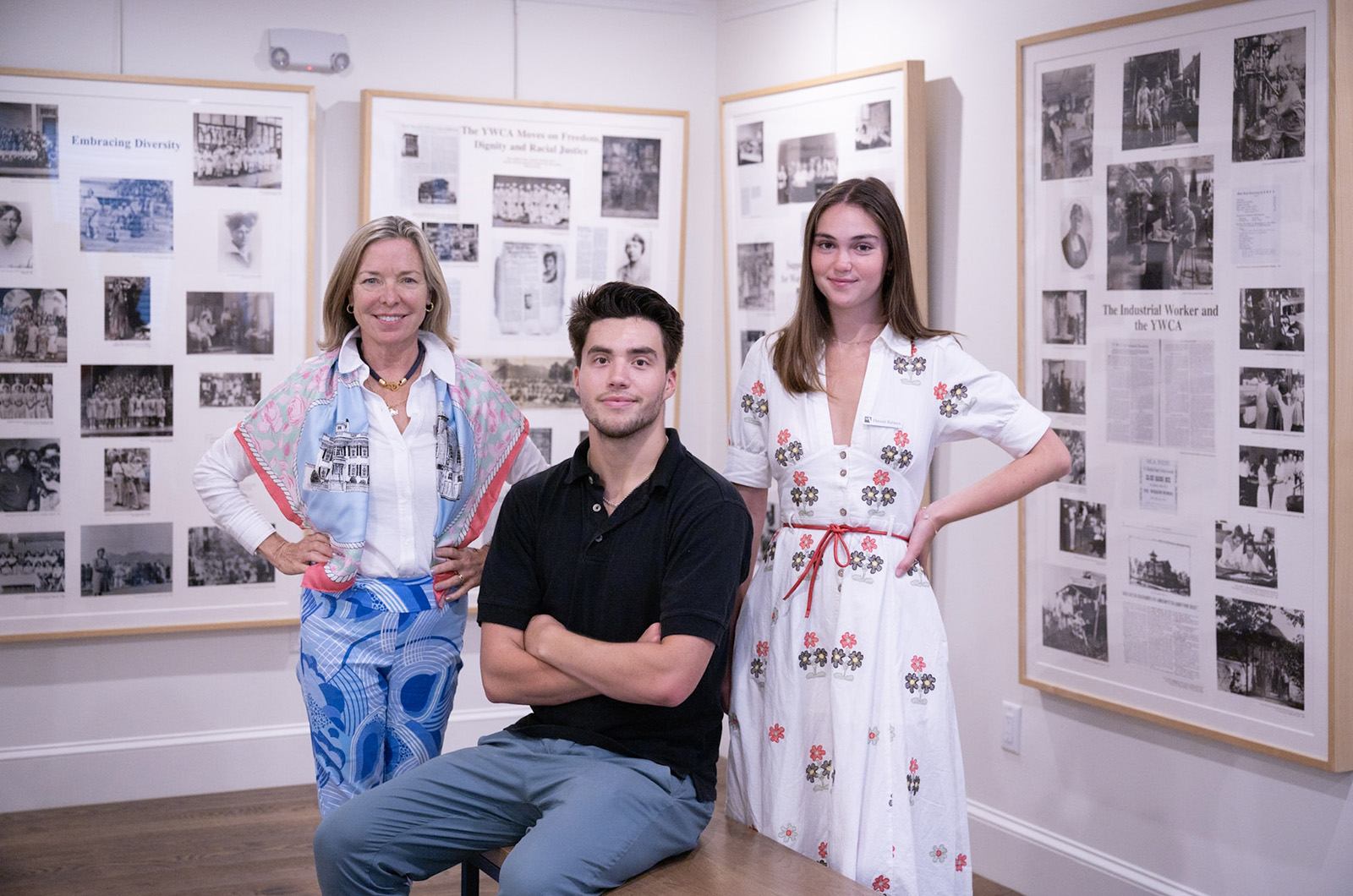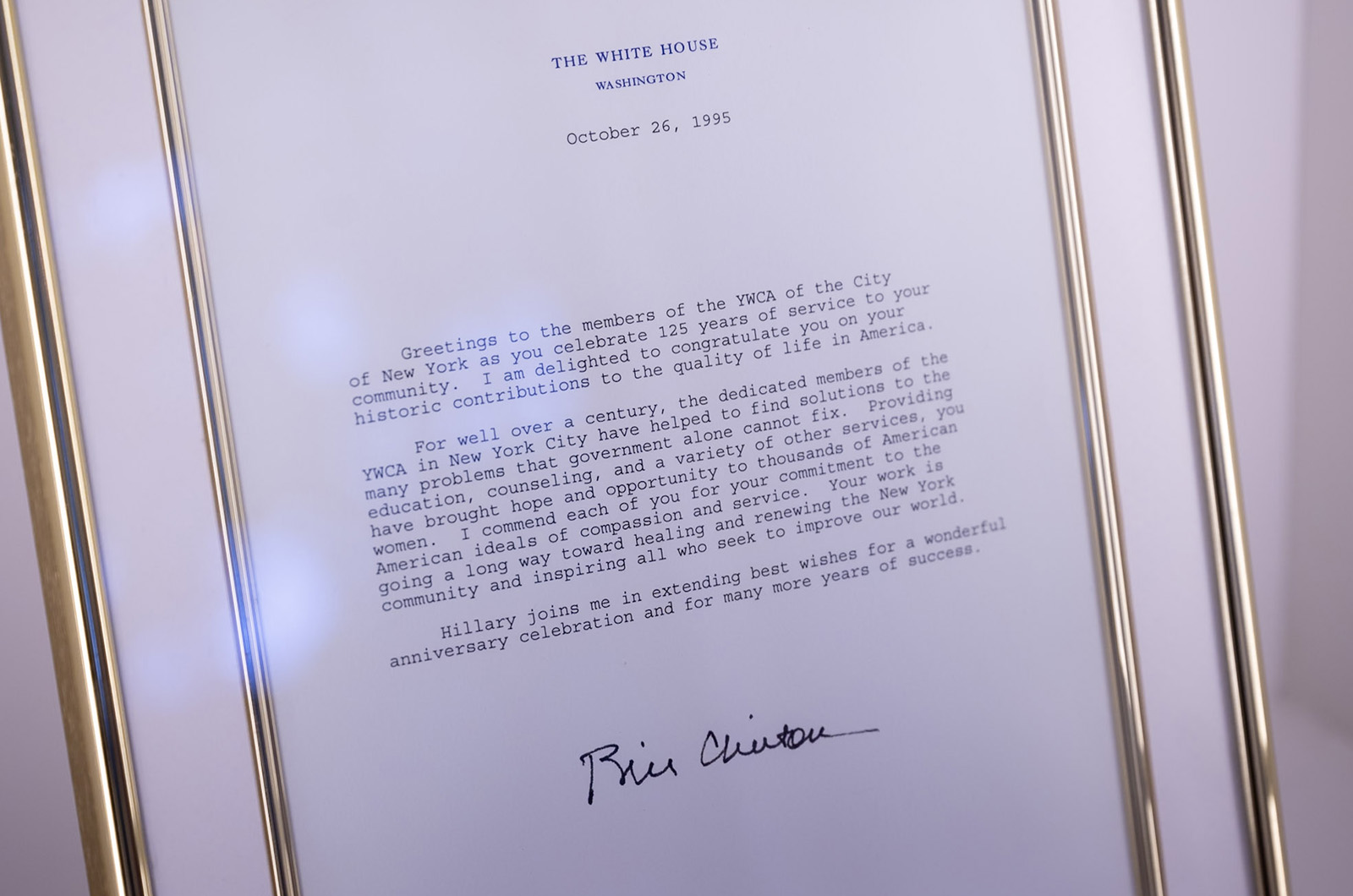The Young Women’s Christian Association (YWCA) was founded in 1858 in New York City. Originally called the Ladies Christian Association, the organization began by holding classes for women to learn various skills such as typing, dining etiquette and homemaking.
Over time it transformed itself into a more wide-ranging and inclusive institution with a focus on eliminating racism and empowering women by promoting peace, justice, freedom and dignity for all.
This history is presented in a new exhibit at the Carnegie Heritage Center in Edgartown, as part of the YWCA’s 165th anniversary celebration.
Sissy Biggers, the community engagement and program director for the Carnegie, helped curate the exhibit. There has never been a YWCA center on the Vineyard, however, Ms. Biggers felt the mission of the organization was an important one to recognize.
“[The YWCA] was really the one-stop for supporting women in this country,” Ms. Biggers said. “It’s really a great opportunity for us to work with them and tell a story that will resonate with Edgartown especially in August.”
In 1889, the YWCA opened an African American branch in Dayton, Ohio. Ms. Biggers said it was one of the first in the country to empower Black women.
“Telling the story of the empowerment of women and girls is as important as ever,” Ms. Biggers said.
A panel of the exhibit is dedicated to Dorothy Height, a Black woman who helped found the YWCA’s Center for Racial Justice, which aimed to address racial issues and promote racial equity.
Large poster boards make up a timeline of the association’s history, specifically highlighting its civil rights progression. The posters are a collage of different pictures and news clippings that lift up prominent activists and put a spotlight on their international relations.
Margaret Mitchell, CEO of the YWCA, said the organization’s mission remains essential.
“In 2024, fundamental rights like reproductive justice, LGBTQ+ rights, gender and pay equity are facing rollbacks, redefining our civil liberties as women,” Ms. Mitchell wrote in an email to the Gazette. “For the past 165 years, YWCA has opposed these changes. We are committed to our mission of eliminating racism, empowering women, and breaking down barriers to success both in the U.S. and globally.”
The exhibit also includes illustrations of women playing tennis and socializing, accompanied by text emphasizing the importance of “play”. Looked at today the images do not seem controversial and yet, in 1913, the YWCA in Columbus, Ohio was one of the only places where women were allowed to exercise in public. The association began to promote women’s health and well-being by building and promoting fitness facilities where women were free to swim and run and socialize.
In the early 1900s, the National Board of the YWCA also commissioned illustrations to advertise the importance of camaraderie and sisterhood.
In a window case in the exhibit’s front room are books and china that belonged to Emily Post, a longtime Edgartown summer resident who became famous for her book about etiquette. Prior to her death in 1960, Ms. Post shared her books and papers with the YWCA.
Ms. Biggers said she added Ms. Post’s story to the exhibit because she felt it was important.
“We have a shared history and we’re going to make history again this month by telling that story here at the Carnegie,” Ms. Biggers said.
The YWCA exhibit at the Carnegie continues through Sept. 3.









Comments
Comment policy »